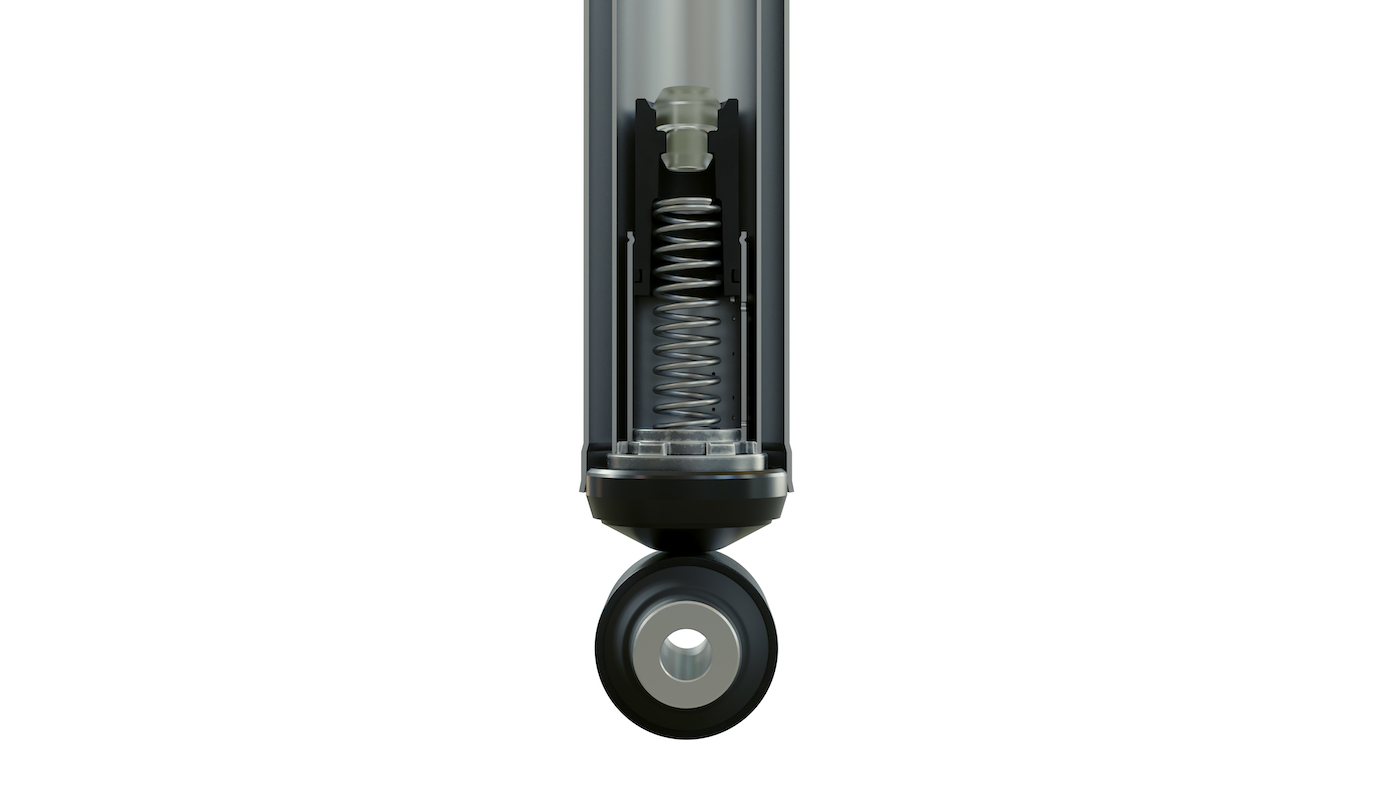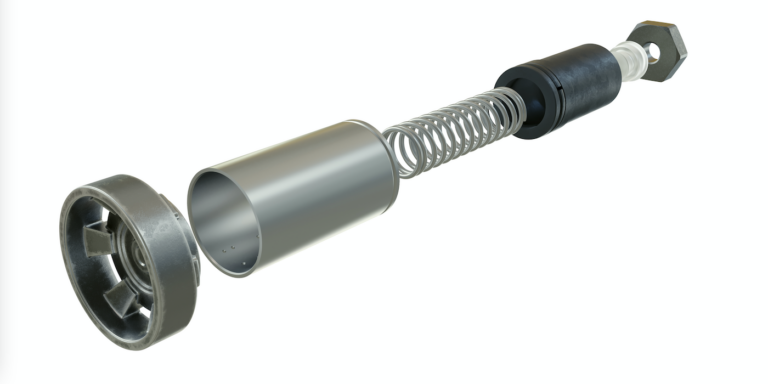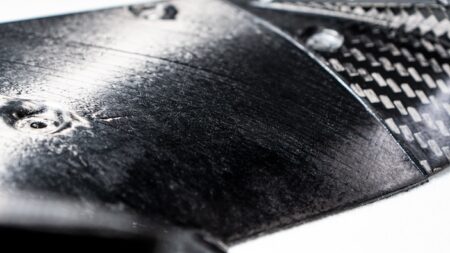The engineering team at Tenneco has developed a tuneable end-stop technology to support OEMs’ electrification and vehicle lightweighting strategies. Named the Monroe RideRefine Hydraulic Compression Stop (HCS), the unit is designed to improve ride comfort and body control by enabling a better trade-off between ride height and end-stroke compression damping.
According to Tenneco the HCS “significantly” reduces the impact forces transferred to the vehicle body structure when a damper is near the end of a compression stroke and allows reduction of damping force near the middle of the stroke. HCS reduces bottoming load and filters out the noise and harshness typically experienced in high-impact road events such as driving over kerbs and potholes.
This controlled peak end-stop force could help OEMs reduce the structural requirements of vehicles that typically carry heavier loads – including EVs with battery packs – and/or have limited ground clearance. The HCS can also help optimise vehicles equipped with large tyres, such as SUV and Crossover models, which can generate high end-stop loads.
The RideRefine HCS subassembly is an add-on module that can be integrated with Tenneco’s standard piston valves and double-tube damper assembly processes. According to the company, tests conducted on a leading luxury SUV platform showed a reduction in bottoming load of up to 30% compared to dampers without HCS. The HCS can be tuned to the unique requirements of each vehicle model.
RideRefine HCS is the latest in a range of add-on modules, which also include valves that utilise stroke-dependent damping (SDD) and frequency-dependent damping (RC1).






